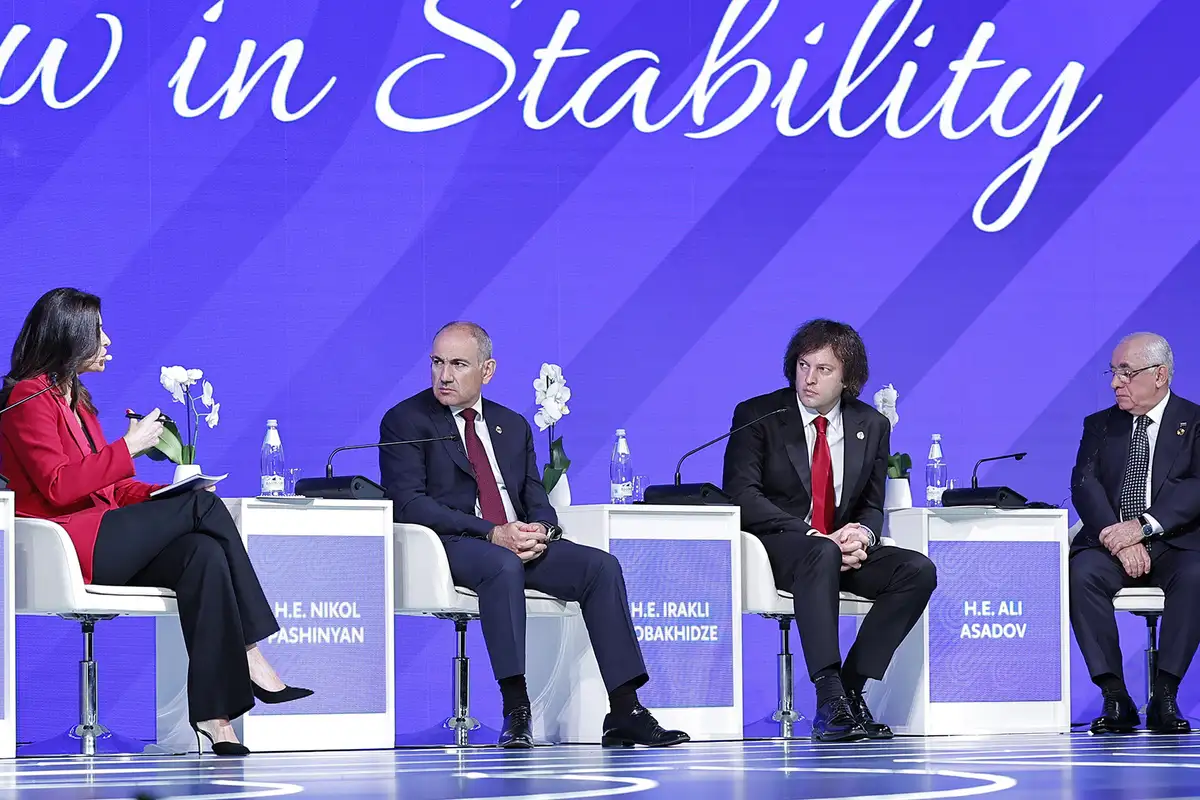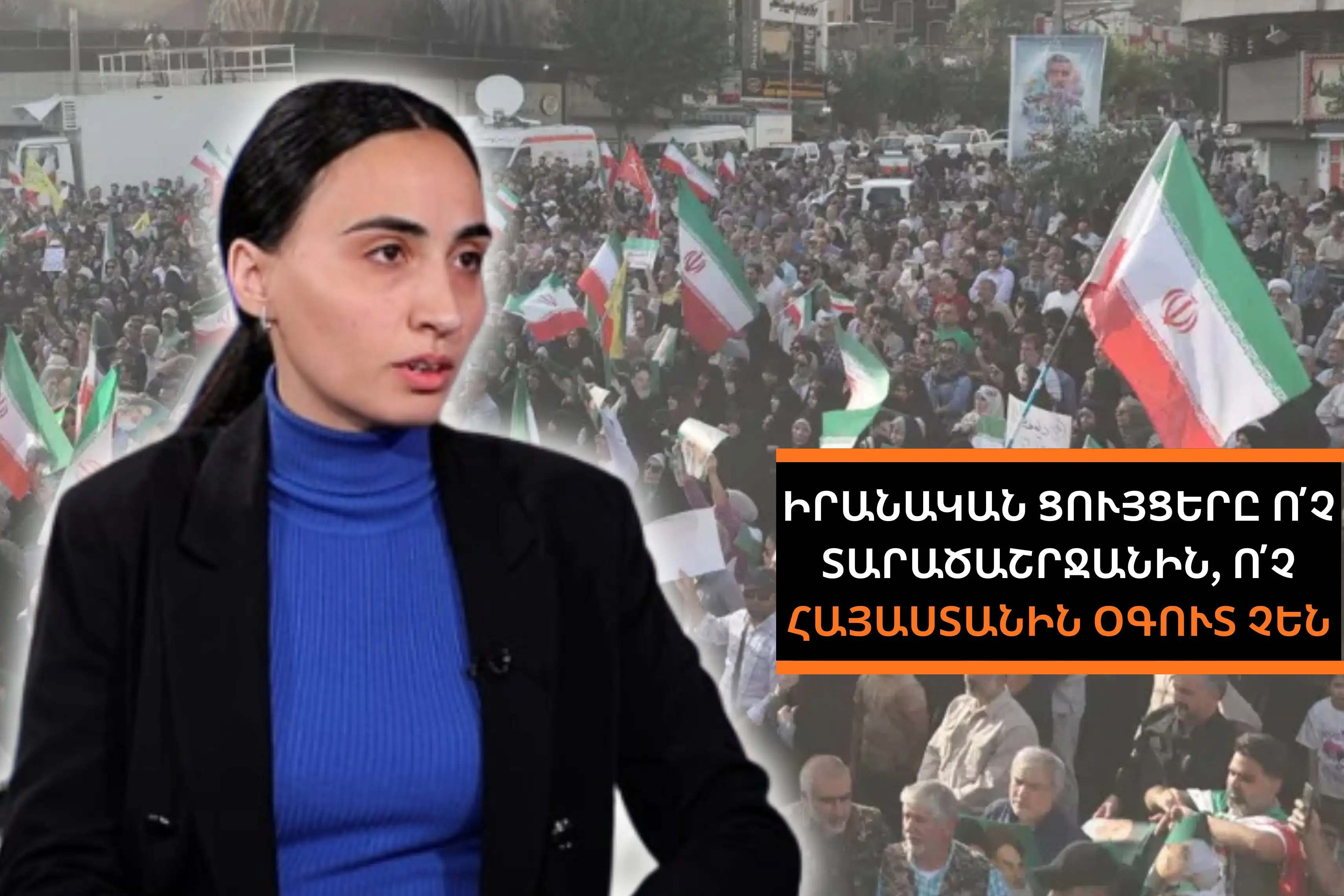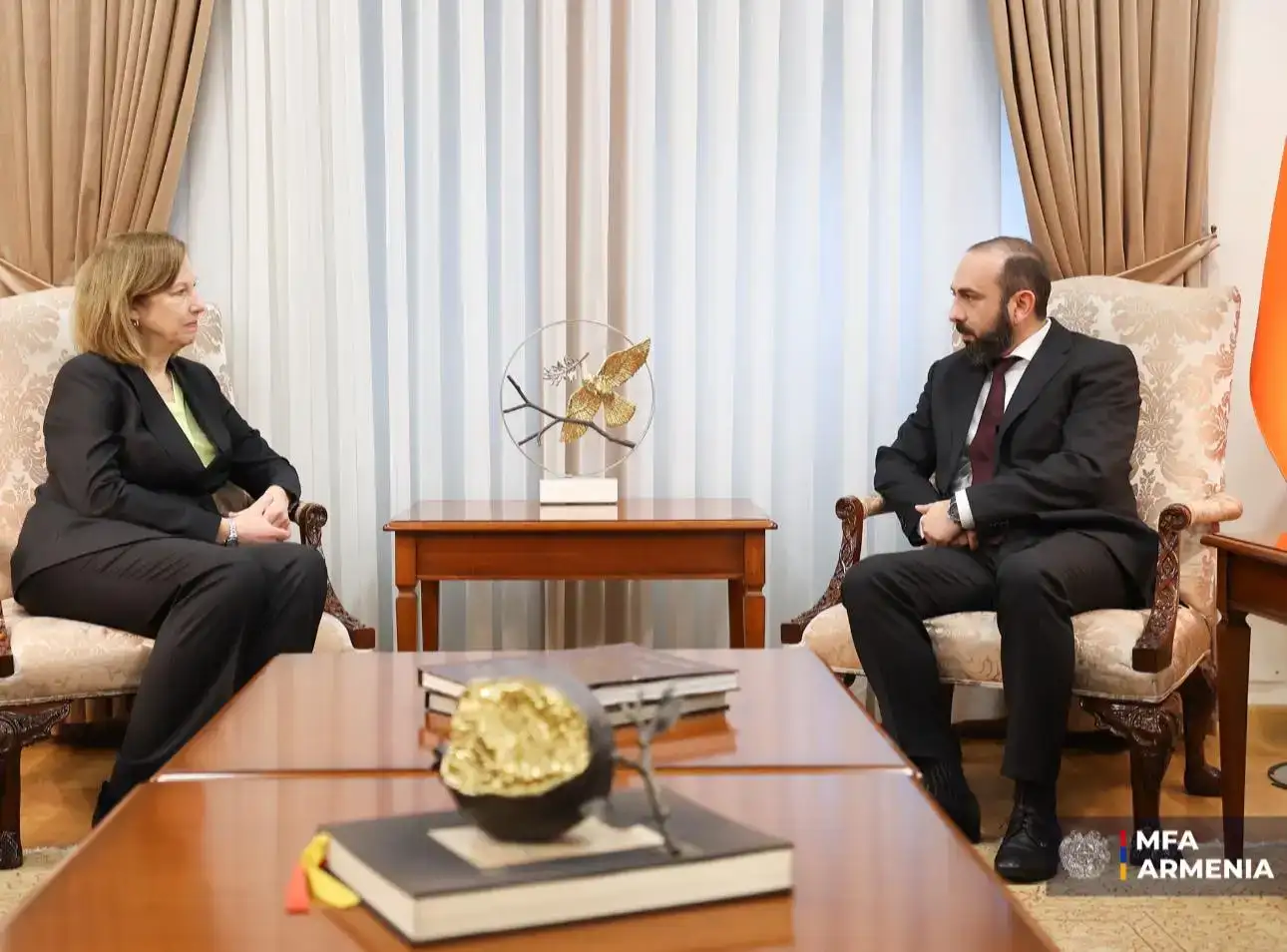Prime Minister Nikol Pashinyan, who is on a working visit to Georgia, participated in the 5th Silk Road Forum, which Georgian Prime Minister Irakli Kobakhidze and Azerbaijani Prime Minister Ali Asadov also attended.
The Prime Minister made a speech within the framework of the forum, in which he, in particular, noted:
"Dear Prime Minister Kobakhidze,
Dear Prime Minister Asadov,
Dear participants of the forum,
Ladies and gentlemen.
First of all, I would like to thank my colleague, Georgian Prime Minister Irakli Kobakhidze, for the invitation to this event and for the warm welcome.
It is a great honor for me to participate in the Tbilisi International Silk Road Forum for the second time, which, true to its name, has become an essential platform for contacts and discovery of new ideas among officials from different countries, the private sector, and international experts.
Yes, you are right: last time, in October 2023, speaking at the Silk Road conference, I first presented the "Crossroads of Peace" project, initiated by the Government of the Republic of Armenia, from this very platform, which subsequently received the approval and support of our many international partners.
The key idea of that project was to develop regional and international transport communication across the territory of the Republic of Armenia, not only to Georgia and the Islamic Republic of Iran, but also to Azerbaijan and Turkey, by opening borders with them.
We have made significant progress in this regard. On August 8, 2025, at the initiative and with the support of US President Donald Trump, the President of Azerbaijan and I adopted a Declaration of Peace in Washington, DC, which President Trump also signed as a witness. The Declaration refers explicitly to the regional transport routes, and its 3rd paragraph states: We reaffirmed the importance of opening up communications between the two countries for domestic, bilateral and international transportation, based on respect for the sovereignty, territorial integrity and jurisdiction of states, to promote peace, stability and prosperity in the region and its vicinity. These efforts will include unhindered communication between the central part of the Republic of Azerbaijan and the Nakhchivan Autonomous Republic through the territory of the Republic of Armenia, with mutual benefits for the Republic of Armenia in terms of international and domestic communications." This was a quote from the Washington Declaration of Peace of August 8.
Dear guests,
Azerbaijan has taken an essential step in implementing this point of the Declaration. President Aliyev announced yesterday that Azerbaijan is lifting restrictions on the transit of goods through its territory to Armenia. This is a significant announcement, and I want to express my appreciation for the President of Azerbaijan's step and welcome it.
Something that seemed incredible months ago is happening: Grain is being imported from Kazakhstan to Armenia via Azerbaijan and Georgia. I would also like to express my appreciation for this transaction to the President of Kazakhstan, Kassym-Jomart Tokayev, and the Prime Minister of Georgia, Irakli Kobakhidze.
Distinguished guests,
Dear participants of the Conference,
Further to the above, I would like to draw your attention to the fact that paragraph 4 of the Washington Declaration states: "The Republic of Armenia will work with the United States of America and mutually agreed upon third parties to define the framework for the implementation of the "Trump Road for International Peace and Prosperity" (TRIPP route) communication program on the territory of the Republic of Armenia. We affirm our determination to take all measures in good faith to achieve this goal as quickly as possible."
We are currently working with the United States of America to implement these agreements.
I am also glad to note that the positive dialogue between Armenia and Turkey gives hope that we can also open the Armenia-Turkey border in the near future. But before that, let me note that we are not only politically but also technically ready to ensure the transit of trucks from Turkey to Azerbaijan and from Azerbaijan to Turkey through the territory of the Republic of Armenia, from today, without exaggeration, from today.
Both the roads and the border infrastructure along the Margara-Yeghegnadzor-Sisian-Goris route are ready for this.
Politically, we are also ready to ensure transit from the Nakhchivan Autonomous Republic to the central part of Azerbaijan and vice versa through Armenia's territory. Still, technically, we are not yet ready due to the lack of infrastructure.
Politically, we are also ready to ensure railway transit between Turkey and the Nakhchivan Autonomous Republic, as well as between Turkey and the central part of Azerbaijan. Still, the railway in these sections needs repair or reconstruction.
I am confident that these technical issues will also be resolved within two to three years. In the near future, pipelines and power lines will also be built through Armenia from Azerbaijan to Nakhchivan, as well as the Azerbaijan-Armenia-Turkey route, and, as I said, railway and road transport connections will also be ensured. All this is under discussion within the TRIPP route program. We are also in relevant talks with Turkey and Azerbaijan.
Of course, the most essential condition for bringing all this to life is peace, which was established between Armenia and Azerbaijan at the Washington summit. Now we are working to institutionalize the peace established with Azerbaijan and to sign and ratify the Agreement on the Establishment of Peace and Interstate Relations between the Republic of Armenia and the Republic of Azerbaijan, which was initialed in Washington. In parallel with this, as I said, all transport routes will be opened one by one, bringing a historic change to our region.
Dear guests,
I have read and am familiar with the comments that the transport projects in our region are competitive—that is, they compete with each other. Let me say that I absolutely disagree with that idea, because the transport routes in our region complement each other, increasing the transit potential of the South Caucasus. Let me give you an example: as a result of implementing the third point of the Washington Declaration, the Persian Gulf-Black Sea railway will also be opened, significantly increasing the transit potential not only of Armenia but also of Georgia and Azerbaijan.
The Armenia-Turkey dialogue, the peace that has been established between Armenia and Azerbaijan, the TRIPP route project, the good-neighborly relations of Georgia and the Islamic Republic of Iran with the countries of the region will make the South Caucasus the most attractive transit route in the North-South and East-West directions, which means that the infrastructures of all the nations of our area will be overloaded, if not insufficient, to serve these growing flows.
The enormous international interest now focused on the South Caucasus is a capital that we, together — Armenia, Georgia, Azerbaijan —must use correctly to guarantee the development and stability of our region.
We finally have a historic chance to ensure not only a peaceful, but also a prosperous and developing South Caucasus. After all, peace, prosperity, and development are the constant companions of commercial cargo, pipelines, and power lines, or vice versa, commercial cargo, pipelines, and power lines are the constant companions of peace and prosperity. And now peace has come to our region. All we have to do is bring more cargo, more pipelines, power lines, and more prosperity, more development to the South Caucasus, which will further strengthen peace, which in turn will increase the volume and pace of cargo, prosperity, and development, for all of us, Armenia, Georgia, and Azerbaijan.
We, the leaders of the three South Caucasus countries, have enough will, wisdom, and foresight to work not only separately but also together to ensure the presence of these cargoes, prosperity, development, and peace.
Of course, in cooperation with our other neighbors and international partners.
Honorable Prime Minister Kobakhidze,
Dear participants of the Conference,
Ladies and gentlemen,
Thank you for your attention."
The Prime Minister also answered the moderator's question.
Question - We just heard from Prime Minister Pashinyan about the importance of peace and stability, and the steps Armenia is taking to strengthen ties with its neighbors, including Turkey. How do steps aimed at promoting economic relations and regional cooperation, that agenda, strengthen ties? And what role does ties play in advancing the peace agenda and enhancing trust between neighbors?
Prime Minister Nikol Pashinyan: Thank you for the question. But first, I would like to thank my colleagues for their speeches and for focusing on the positive aspects.
The atmosphere of the August 8 event is also expressed here. A year ago, we would not have seen such a thing: the Prime Minister of Armenia thanking the Prime Minister of Azerbaijan. We always thank the Prime Minister of Georgia; there is nothing new there. But a year ago, we would not have seen the Prime Minister of Armenia thanking the Prime Minister or President of Azerbaijan, and the Prime Minister of Azerbaijan thanking the Prime Minister of Armenia. And this is evidence of significant events. Peace has indeed been established between Armenia and Azerbaijan. And I want to pay attention to this nuance, because this emphasis is made by both myself and President Aliyev, and that is a reality.
Interconnection is essential for institutionalizing the peace established because, as I emphasized in my speech, transport connections bring shared benefits. But it should also be said directly that they also have interdependencies. Of course, this word may not sound politically harmonious, but this is a very important factor. In other words, what is meant? When countries begin to cooperate in the field of transport communications, what effect does it bring? This leads to an impact of economic growth, it leads to an increase in budget revenues, it leads to the effect of making state expenditures and increasing the level of well-being of societies, and suddenly the countries understand that they are mutually interested in each other's stability, territorial integrity, sovereignty, and the ability of governments to make independent decisions, because it is imperative that countries, in this case I am talking about the nations of the South Caucasus, when communicating with each other, be confident that we can reach agreements and implement these agreements.
Yesterday, we discussed this topic with Prime Minister Kobakhidze. I shared this thought of mine with Prime Minister Kobakhidze. You know, the established peace is also a perfect opportunity for us to look back on our history over the past hundred years. When we look at our last hundred years of history from a slightly different perspective, we understand that our stories are interconnected. I will give the simplest and most famous example: 1918. Armenia, Georgia, and Azerbaijan gained independence within a few days, only to lose it again later. In 1991, the three countries regained independence roughly simultaneously. And when we say we should learn from our history, in 1991, we did not know enough from the 1918-1920 period, and we did not understand why we gained independence together and lost it together. One reason is that we did not appreciate the importance of each other's independence, sovereignty, and statehood. We or our ancestors could gain greater benefits by fighting each other. Meanwhile, history has shown that when we fight each other, we only suffer losses and lose the most important thing—the state and independence.
And I want to make my perception, my conclusion, why peace between Armenia and Azerbaijan became possible. This has not been discussed. I am giving my impression; I am sharing my thoughts. We have never discussed this topic with President Aliyev. In my opinion, there is still an invisible factor that made peace possible, an opportunity was created to see the South Caucasus in a broader context and to understand that nevertheless, and as history shows, despite the conflict, contradictions and long-standing hostility, in the case of us and Azerbaijan, I mean, the destinies of the South Caucasus countries have specific interconnections. And the conflict and hostility often prevent us from noticing the common interests we may share.
What is this positive atmosphere today about? It does not mean that the history of our conflict has disappeared; it was erased in one day. No, it cannot be like that. It means something else: we have begun to notice more clearly that the countries of the South Caucasus—Georgia, Azerbaijan, and Armenia—have common interests. And there is a possibility that these common interests have strategic significance.
I didn't really deviate from your question about transport, about communication, because if we look at the issues from this perspective, we will be able to achieve regional competition. After all, countries, people, and parties compete; that is normal. We can use that energy in the South Caucasus to foster an atmosphere of cooperation, recognizing that the cargoes and pipelines that will pass through our region will, in fact, bring income to all our countries.
Therefore, we have a common partnership. Therefore, all of us, when our state budget and public revenues increase, will have an agenda: what to do so that these revenues do not decrease first and, on the contrary, increase. Here is the simplest basis for common interests I was talking about. Thank you.




















